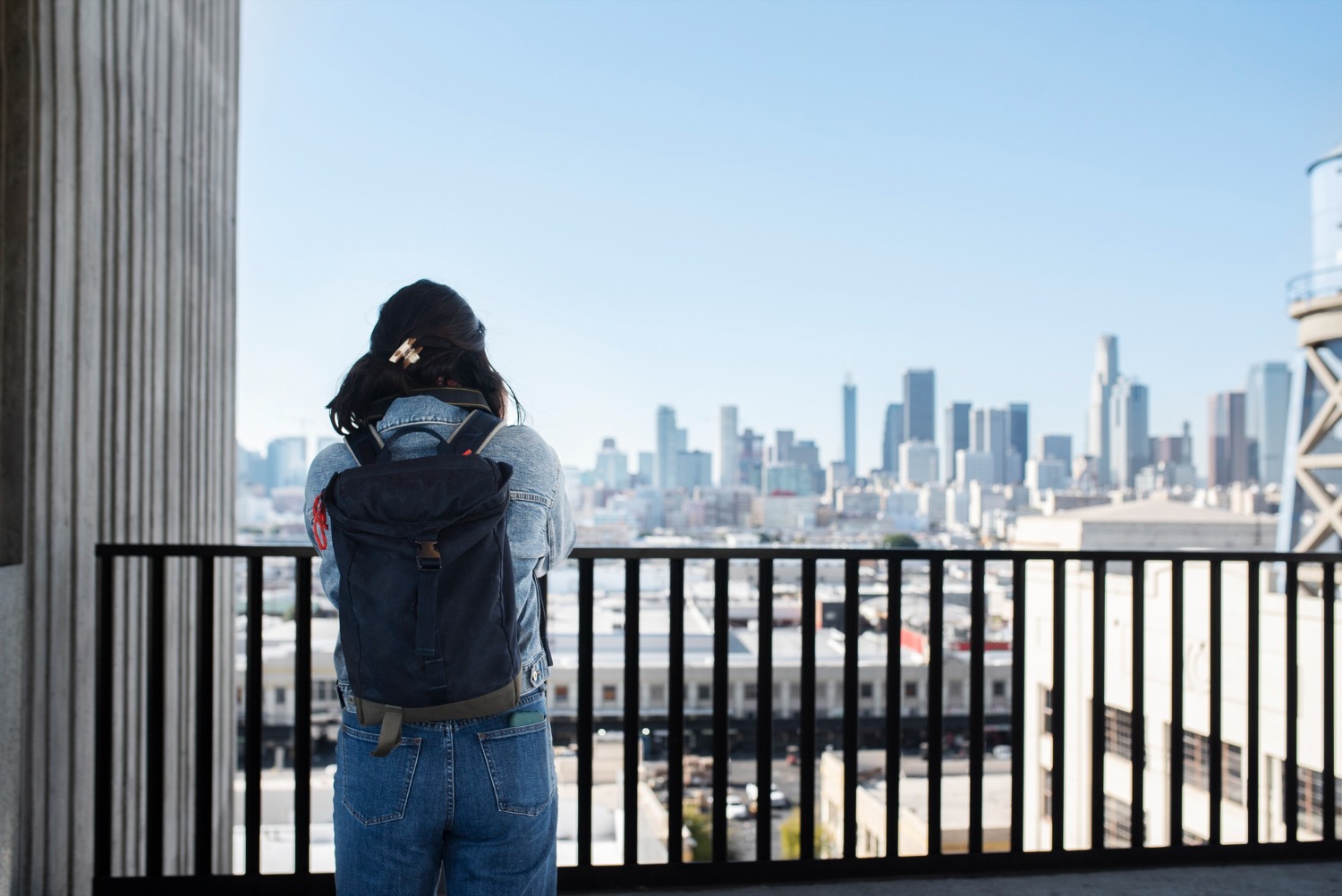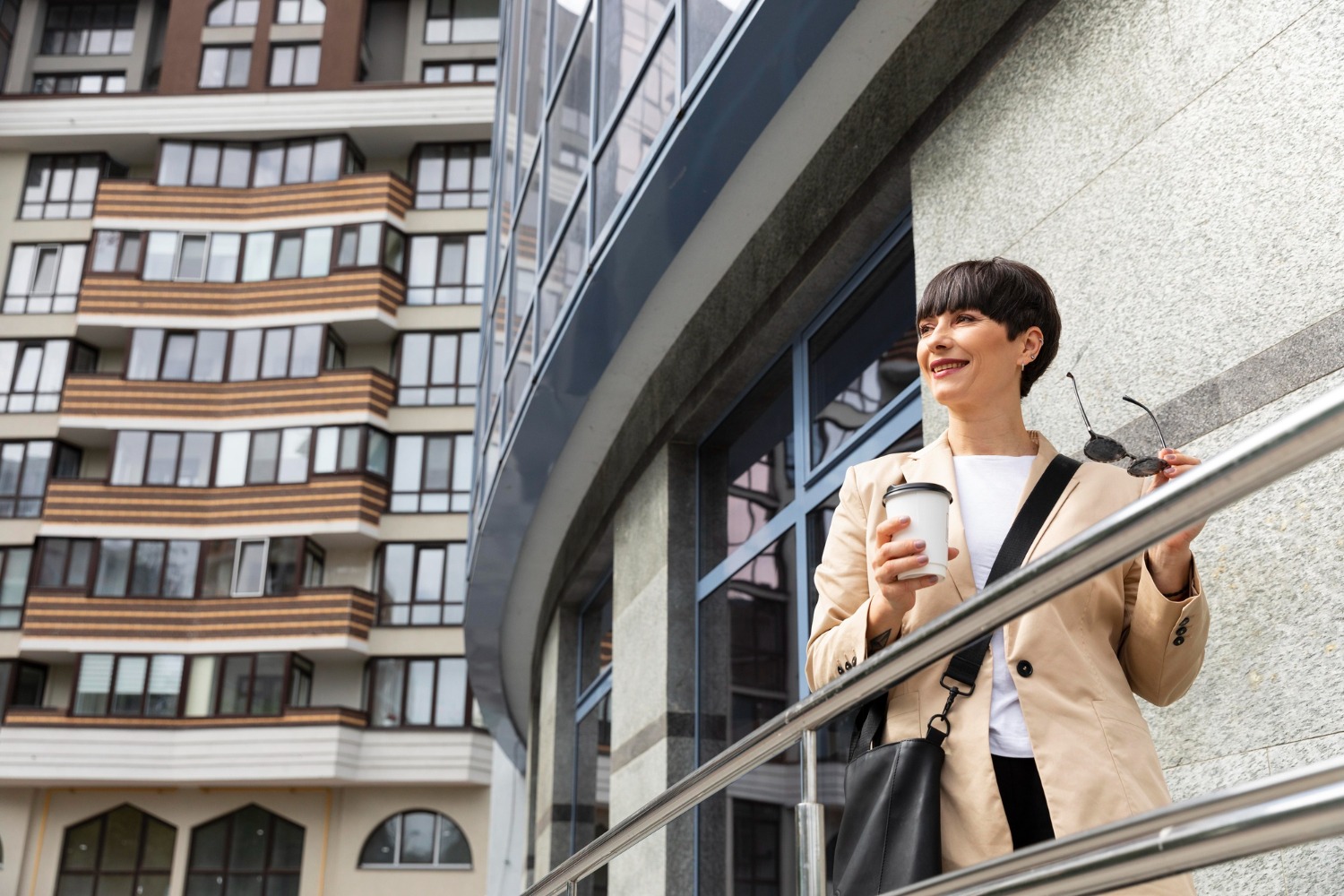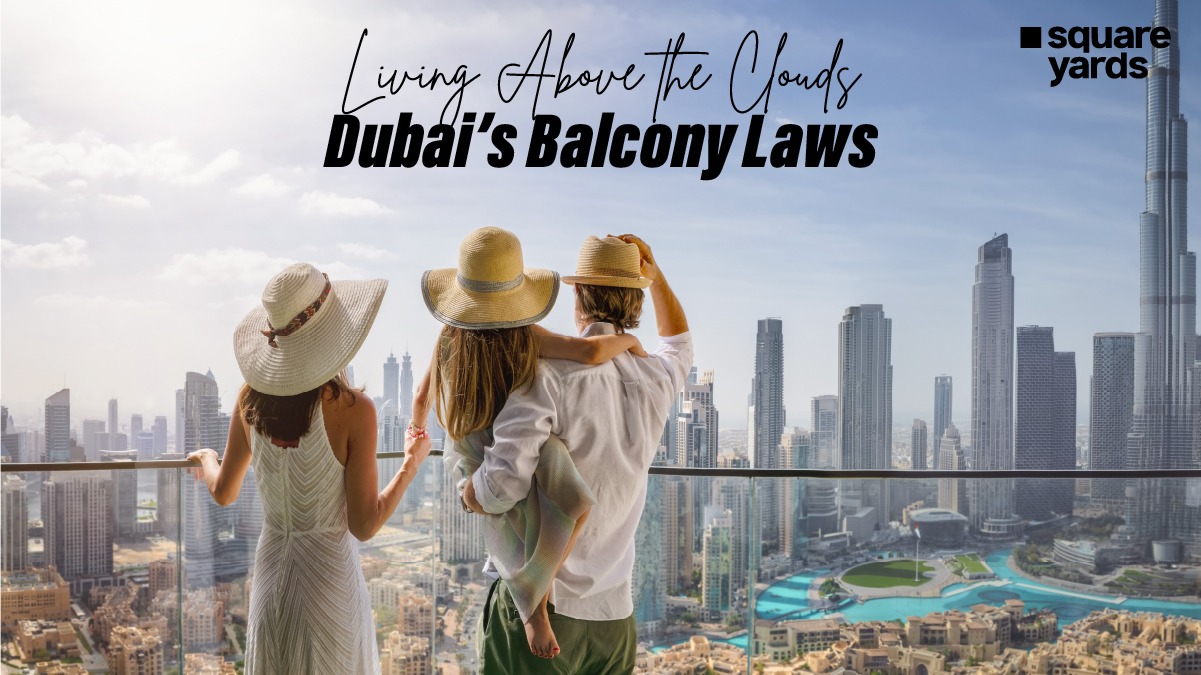Balconies are special in urban homes, providing a unique bridge between the indoors and outdoors. A room with a balcony in Dubai offers a personal space where one can bask in the sunlight, breathe fresh air, and enjoy surrounding views—all from the comfort of home. These spaces are more than just architectural features; they add value and practicality to living spaces, particularly in city apartments and high-rise buildings. According to Dubai Municipality Balcony rules balconies ensure these spaces remain safe and cherish parts of modern living. Whether you consider a balcony enclosure in Dubai, adhering to balcony rules for apartment buildings is crucial. Misusing a balcony in Dubai can lead to penalties. This blog explores the rules and regulations for the construction and usage of balconies in Dubai.
Introduction to Dubai Municipality Balcony

A balcony is an elevated platform enclosed by a railing or parapet extending from a building’s facade. Typically accessible through a door or window from the interior of the building, balconies are designed to provide outdoor space for residents in urban environments where ground-level gardens or yards may not be feasible. Dubai Municipality Balcony Rules regulate the design and safety standards for such structures. Balconies vary in size and design, ranging from small Juliet balconies to expansive terraces.
Advantages of Having a Balcony
Balconies offer numerous benefits that improve the living experience in urban settings:
- Outdoor Space: Balconies provide a private outdoor area where residents can relax, socialise, and enjoy the views without leaving their homes.
- Natural Light and Ventilation: They allow more natural light into the living space and improve air circulation, creating a healthier indoor environment.
- Aesthetic Appeal: A well-designed balcony enhances a building’s visual appeal, contributing to its overall architectural beauty.
- Property Value: Properties with balconies often have higher market value and are more attractive to buyers and renters.
- Gardening: Balconies offer space for container gardening, allowing residents to grow plants and flowers and adding greenery to urban living.
- Extended Living Space: Balconies serve as an extension of the indoor living area, providing additional space for various activities like dining, reading, or exercising.
Dubai Balcony Construction Laws & Municipality Rules

In Dubai, the construction and use of balconies, including balcony enclosures, are governed by strict regulations such as the Dubai Municipality rules for balconies. These balcony rules and regulations in Dubai ensure safety, maintain architectural standards, and improve the living environment. Whether a room with a balcony in Dubai or an entire building, developers and property owners must comply with these balcony rules for apartment buildings to avoid penalties. Adherence to these guidelines is essential for ensuring the safety and well-being of all residents using a balcony in Dubai.
-
No Barbeque Grills/Statutes
The use of barbeque grills and open flames on balconies is strictly prohibited. This regulation aims to prevent fire hazards that could endanger the safety of residents and the structural integrity of buildings. Residents are encouraged to use designated barbeque areas provided within their residential complexes.
-
Laundry Rules
Hanging laundry on balconies is not allowed as it can detract from the building’s appearance and pose safety risks due to falling items. Instead, residents should use indoor drying racks or laundry rooms provided within the building to dry their clothes.
-
Water Spilling
Spilling water from balconies, whether from cleaning or overwatering plants, is prohibited. This rule is in place to prevent water damage to the structure of the building and to avoid creating hazards for residents living below.
-
Pets and Children
Balconies must be made safe for pets and children. This includes installing childproof locks on access doors, ensuring that railing gaps are small enough to prevent children or pets from slipping through, and using safety nets or screens if necessary.
-
Proper Plantation of Greenery
Residents are encouraged to grow plants on their balconies, but they must do so in a way that does not compromise safety or violate building regulations. Planters should be securely placed to prevent them from falling and causing injuries or damage.
-
Access Door Away From Children
Access doors to balconies should have childproof locks to prevent children from going unsupervised onto the balcony. This reduces the risk of accidents and ensures children’s safety in the home.
-
Smoking Policies
Smoking on balconies is typically allowed unless the building’s rules state otherwise. However, residents must be mindful of their neighbors and ensure that cigarette butts are disposed of properly to prevent littering and fire hazards.
Dubai Municipality Balcony Safety Guidelines You Should Know
Ensuring balcony safety is crucial to preventing accidents and injuries. Key safety precautions include:
- Regular Inspections: Balconies should be inspected regularly for structural integrity and signs of wear or damage.
- Secure Railings: To prevent falls, railings must be of adequate height (minimum of 1.2 meters) and strength, with no gaps larger than 10 cm.
- Non-Slip Flooring: Using non-slip materials for balcony flooring can prevent slips and falls, especially when the surface is wet.
- Supervision: Children and pets should always be supervised on the balcony to prevent accidents.
Things to Keep in Mind: Balcony Rules and Regulations
Balconies offer versatile spaces for relaxation and utility but must comply with balcony rules and regulations to ensure safety and maintain the building’s aesthetic. Properly installing and using items like antennas, satellite dishes, and outdoor furniture is crucial to prevent accidents and preserve the visual appeal of the balconies in Dubai. Compliance with Dubai Municipality balcony rules is essential for a safe and enjoyable experience.
-
Installation of Antennas and Satellite Dishes
Installing antennas and satellite dishes on balconies must comply with the building’s regulations. These installations should not compromise the balcony’s safety or the building’s aesthetic. They should be securely mounted and positioned to avoid obstructing the view or access to the balcony.
-
Use of Outdoor Furniture
Outdoor furniture should be sturdy and suitable for use on balconies. Lightweight or poorly constructed furniture can be hazardous, especially in high winds. Residents should choose weather-resistant furniture that is designed for outdoor use to ensure durability and safety.
Making Balconies Safe for Families
Balconies offer fresh air, but they can also pose serious risks, especially for young children. Transform these potential danger zones into safe havens for families using the following tips.
-
Installation of Safety Nets
Safety nets can be installed to prevent falls and enhance the safety of children and pets. These nets should be durable and securely fastened to the balcony structure. Safety nets provide an additional layer of protection, especially in high-rise buildings.
-
Structural Integrity and Guardrails
Regular maintenance of the balcony’s structural elements and guardrails is essential. Any signs of wear, rust, or damage should be addressed immediately to maintain safety. Guardrails should be checked to ensure they are securely fastened and meet the required height and spacing regulations.
Penalties for Balcony Misuse
Additional Notice
Residents should stay informed about any updates to balcony regulations and ensure they comply with all rules set by the Dubai Municipality and their residential complex. Regular communication with property management can help residents understand and adhere to these regulations. Additionally, residents should report any safety concerns or violations to property management to ensure a safe living environment.
Conclusion




